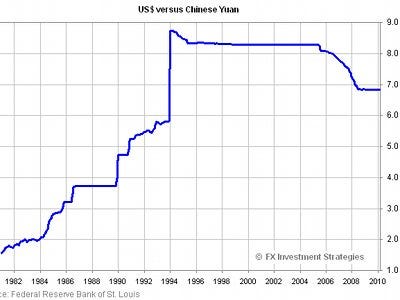Spiritworks said:
John, is it possible to briefly touch on the other 2/3 ? Did Germany do anything on their own, after WW2, to get to their current strong economic position, or was it all NATO planning? Any ideas?
I will leave it to the historians to dissect the Wiemar republic. I got the 1/3 number from one of the sundry wiki pages on the subject. As i recall they attributed it to lack of political leadership or will to undertake unpopular spending cut backs.
Again there is much history written about post WWII germany, and I won't even try to flesh that all out. I'm pretty sure the policy immediately following WWII was not intended to allow a strong germany to emerge, but we didn't break it apparently, and converted an adversary to an ally, something we seem to forget all too often.
FWIW I was a (very) tiny part of that post WWII history (more like cold war era). In 1970 I was in Germany on NATO maneuvers. While NATO was mostly about playing poker (chess?) with the Soviets, there were economic considerations. For example the 1st infantry division that was committed to NATO support in Germany, was actually based at Ft Riley KS for most of the year, and air lifted over to Germany for about two months of maneuvers and war games, ending up in Grafenwehr, literally a few klicks away from the soviet bloc armies doing the same dance on their side of the border.
The massive airlift of a full infantry division, while a useful military exercise, was partially done to manage cash flow. If the entire division was based in germany for the entire year, there would have been significantly more money spent there and not in the US, while the money spent during those two months was not insignificant. The farmers would just about beg us to drive across their fields so they could get reparations. One visual that sticks with me was near the end of maneuvers, seeing truckloads of empty beer bottles traveling in the opposite direction of the division. This was back when Germany used refillable flip top beer bottles (flippies- similar to the modern flip top Grolsh). Since every town had a local beer brewery, all the empties got turned in at the next town, and full ones picked up, so the net empty bottle imbalance travelled from town to town with the soldiers across the country. I assumed the trucks travelled all the way back to where the maneuvers started.
Germany today is clearly an economic success. IMO this is a combination of an export based industrial policy, a very convenient currency made weaker by the behavior of other EU states with less budgetary discipline, and obviously they design and manufacture high quality products that the rest of the world wants.
It is a recipe that works for them, and it isn't their fault that their neighbors are buggering their currency. It is perhaps interesting to note, that the current EU issues show in a microcosm, what would happen if we had a world currency, or hard gold standard, i.e. the economic imbalances would show up somewhere else (like sovereign debt).
There are good things about Germany's policy but we always need to be careful about saying just do that and you will get the same result. That said, I still find it unfathomable, that we have three free trade agreements, negotiated under the last president and still waiting on congress to certify these years later... hello jobs anyone???
I am not an expert on 1920s Germany, or Germany now, but I do have opinions. I do try to follow what Germany does because they have a pretty good track record. The recent decision to get out of nuclear power is interesting. I think they are correct in the long term, near term it's not so obvious.
JR



